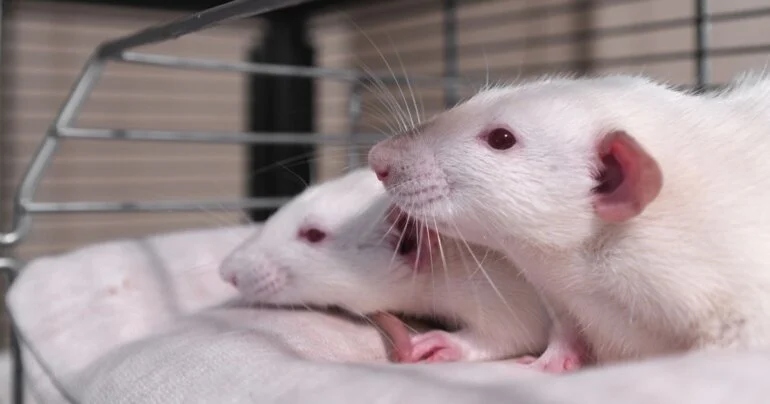UN INT Intro Text w/ Responsive Image - *Important Note* You must UNLINK this shared library component before making page-specific customizations.
Rodents are being infected with bacteria to cause sepsis and then killed at University College London (UCL) – in ineffective experiments that fail to help humans. Tell the university to stop this cruelty!

Infected With Bacteria and Killed
Experimenters administer bacteria into the abdomens of rodents, resulting in their bodies developing sepsis, then leave them to suffer in pain. They may experience fever, chills, laboured breathing, and organ failure before being killed.
Sepsis is a life-threatening condition that kills approximately 48,000 humans in the UK each year. But no animal experiment to date has led to a single targeted, effective drug or treatment for human sepsis.
Experiments on Rodents Are Hindering Progress
Rodent sepsis differs significantly from human sepsis, and using rodents in experiments has likely hindered the development of effective treatments for humans. One hundred and fifty drugs have successfully treated sepsis in mice and failed in humans. According to Francis Collins, former director of the National Institutes of Health (NIH) in the US, using mice in sepsis experiments has caused a “heartbreaking loss of decades of research and billions of dollars.”
In 2024 and 2025, the US National Institute of General Medical Studies announced it would no longer fund studies that include certain sepsis-induction methods commonly used on rodents, advocating instead for humane, non-animal methods in sepsis research. In addition, the NIH recently launched an initiative to move away from experiments on animals and “prioritize human-based research technologies”.
Experts report that the future of sepsis treatment hinges on personalised medicine. This requires human-relevant research methods, such as human cell and tissue computational models, organs-on-chips and organoids generated using human cells, and AI tools.
Take Action Now!
Tell University College London to join major health bodies and other institutes, including the University of Kent, in ending sepsis experiments on animals. The future of sepsis research is animal-free!